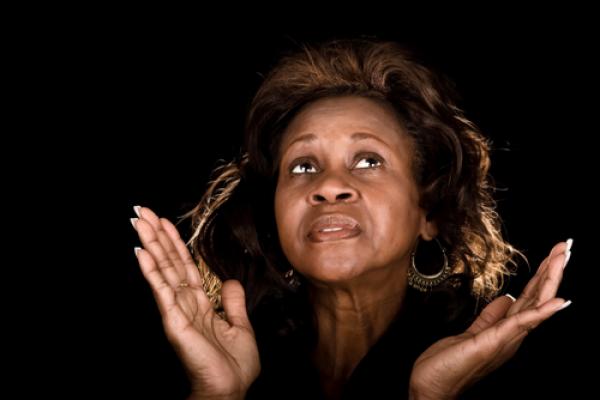I’ll preface this piece my saying I know I am making some broad generalizations based on gender, and that there are always exceptions to every trend. But despite that, I do think there are some cultural trends that can offer us some useful insight.
Anyone who has been paying attention has noticed that, of those left within the walls of most churches, the majority still hanging in there are women. Some, like the advocates of so-called Masculine Christianity, see this as a crisis. The Christian faith and its symbols are becoming softened, feminized, compromised into being something other than what they were meant to be.
Granted, when you take a faith whose principal authors historically have been men and then place that same faith in the hands of women, some things will inevitably change. Personally, I welcome the exploration of other, feminine expressions of the divine and values such as embodied spirituality that many female Christian leaders value. But aside from these assets, I think that women bring something far more critical to institutional religion.
Without them, it may cease to exist.
Enter: the broad generalizations about gender.
Since prehistoric times, men have tended to be the ones who ventured out, often alone or perhaps in pairs, to hunt. They had to be stealthy, agile and quick, all of which are easier when unencumbered by a large entourage. We learned how to be alone, acclimated to being more independent and self reliant.
Women, on the other hand, were the primary caregivers for the young, and whereas the goals of the male hunters were fairly singular and focused, the demands on women were more complex and multifarious. For this, a social system of interdependence, rather than independence, served the greater good more effectively.
As such, women were more essential for the establishment and maintenance of communities.
Jumping ahead to today, we see a Church with an identity crisis. Organized religion is scrambling to re-establish relevance in a culture that, in many ways, has seemed to move on. The infrastructures of the past, built to accommodate booming church attendance, now present a challenge of ongoing sustainability that some churches and denominations find crushing.
So what is it that Church can offer a world that is weary of its dogma, suspicious of its motives, and skeptical about its teaching? At the heart of what we can provide that is unique in many ways, yet sorely lacking in our culture, is intentional community. Yes, I recognize that some may believe the teaching of the church is paramount, but if that falls on deaf ears due to a profound, systemic lack of trust, the wisdom loses all potency. Better to establish firm, deep roots in community, first engendering an authentic personal trust that can later lead to a respectful exchange of ideas and stories on matters of faith, justice, and hope.
In the past, we have depended on the authority of the church and its figureheads to hold community together based on strong leadership. But our relationship with authority has changed dramatically in the past two generations. We’re skeptical, guarded, even pessimistic.
But what hasn’t changed is our inherent need for one another. We’re experiencing loneliness and isolation at epidemic levels, even while we are more networked than ever before through technology. We crave meaningful engagement, sincere relationship and for others to bear witness to our lives, as we also bear witness to theirs.
Who better to model such a resource for our culture than those who have been at the heart of such community since before the dawn of recorded history?
We can hold fast, clinging to our authority, drawing lines and issuing ultimatums, while watching people continue to walk away by the millions. Or we can recognize that what the world needs at this point, far more than another sermon or worship service is a model of healthy interdependent community. And as scripture assures us, if we gather together with the intention of truly seeking God in our midst, we will find what we’re looking for.
Christian Piatt is an author, editor, speaker, musician and spoken word artist. He is Director if Church Growth and Development at First Christian Church in Portland, Ore. Christian is the creator and editor of "Banned Questions About The Bible" and "Banned Questions About Jesus." His new memoir on faith, family and parenting is called "PREGMANCY: A Dad, a Little Dude and a Due Date."
Photo: Woman praying, © John Wollwerth | View Portfolio / Shutterstock.com
Got something to say about what you're reading? We value your feedback!
